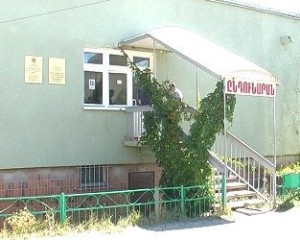According to forensic examination report, the newborn who died in Gyumri in March 2016 received inadequate medical care but Prosecutor’s Office still finds no element of crime
16:33, May 18, 2017 | News, Own news According to the report of the forensic examination to establish the circumstances of the death of the newborn who died at Austrian Mother and Child Hospital in Gyumri on March 12, 2016, the treatment and medical examination of the newborn at Gyumri Maternity Hospital CJSC was carried out with a series of faults.
According to the report of the forensic examination to establish the circumstances of the death of the newborn who died at Austrian Mother and Child Hospital in Gyumri on March 12, 2016, the treatment and medical examination of the newborn at Gyumri Maternity Hospital CJSC was carried out with a series of faults.
Along with the faults identified by the forensic examination, the report also states that: “Unless there were the said faults and shortcomings, the child’s life might be prolonged for only a very short time, about some days.”
Based on the forensic examination report, Arayik Zalyan, representative of the dead newborn’s mother Liana Darbinyan and lawyer at HCA Vanadzor, submitted a complaint to the Prosecutor General’s Office on eliminating violation of the right to life under Article 2 of the European Convention on Human Rights, bring charges against the medical staff who failed in their work and assign examination of the case to another division of the Investigative Committee.
In this context, A. Zalyan highlighted the fact that throughout the preliminary investigation lasting for over a year, the investigating body took no efficient steps to detect the crime; the investigative actions and expert examinations were solely the result of the motions by the aggrieved party.
Also, the investigation did not examine the information provided by victim’s representative Liana Darbinyan that the power went off at the maternity hospital. Also, the criminal case lacks any documents on the health problems of the mother and the newborn and relevant treatment which reinforces the suspicions about substitution of newborns, the more so if we take into account the fact that the first forensic genetic examination failed to establish whether H. Petrosyan and L. Darbinyan were the parents of the dead newborn.
And as for the expert’s argument that the newborn’s health problems might not be identified in the antenatal period, such argument just casts a shadow on the quality of free medical service offered in the Republic of Armenia; failure to detect such diseases and changes in the organs suggests that the offered free medical care is just formal and this should be examined as well.
In their response to the aggrieved party’s complaint, the Prosecutor’s Office argues that the motions to question the medical staff taking the newborn from the maternity hospital to general hospital, to seize the medical documents and ask the expert some questions were granted and the said actions were taken. And they consider the investigative body’s actions lawful and see no grounds to initiate criminal proceedings or send the case to another division of the RA Investigative Committee.
Interestingly, the Prosecutor’s Office no longer addresses the core content of the complaint trying to avoid the issue of prosecuting the medical staff that failed in their work. By doing so, the state avoids its commitments to protect the life of the persons under its jurisdiction and obviously violates the right to life as enshrined in the European Convention on Human Rights.
